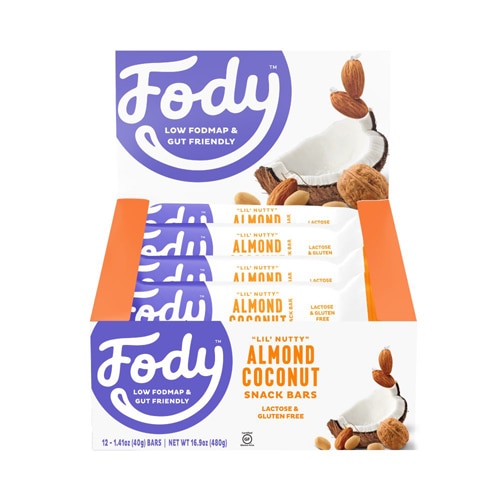A diet with a funny little name can offer big benefits to people struggling with symptoms of irritable bowel syndrome (IBS).
The low-FODMAP diet aims to identify and eliminate foods known to trigger unpleasant gut symptoms such as:
- Abdominal pain
- Intestinal gas
- Bloating
- Changed bowel habits that include everything from constipation to diarrhea
The diet has the potential to help millions of people. About 1 in 7 Americans have symptoms related to IBS, according to the International Foundation for Functional Gastrointestinal Disorders (IFFGD).
The acronym "FODMAP" -- fermentable oligosaccharides, disaccharides, monosaccharides and polyols -- is used to describe a group of short-chain carbohydrates known to cause digestive problems in some people
Patsy Catsos -- a Portland, Maine-based registered dietitian and author of "The IBS Elimination Diet and Cookbook" – says she has been practicing with and writing about FODMAPs for nearly a decade.
She believes the low-FODMAP diet has the power to change the lives of some people who try it.
"Eating in a way that won't cause abdominal pain, bloating and unpredictable bowel habits dramatically improves the lives of IBS sufferers," she says.
Why FODMAPs cause problems
Researchers have discovered that some people have a small intestine that struggles to absorb short-chain carbohydrates. Instead, bacteria rapidly ferment the carbohydrates in the gut. When this happens, the bacteria produce gas that leads to IBS symptoms, according to the IFFGD.
In some cases, making a few small changes can eliminate symptoms associated with IBS, Catsos says. These measures include:
- Eating enough fiber
- Drinking more water
- Engaging in daily exercise
If such adjustments don't eliminate symptoms, a switch to a low-FODMAP diet often can help.
Australian researchers developed the low-FODMAP diet more than a decade ago, and studies have shown it to be effective for many people with IBS, and some people with inflammatory bowel disease.
The core of this dietary strategy involves temporarily eliminating foods rich in the short-chain carbohydrates that cause symptoms. The IFFGD has a roundup of such foods on its website. They include:
- Wheat and rye
- Milk, yogurt and other dairy products
- Many specific fruits and vegetables
- Honey and foods containing high-fructose corn syrup
- Sugar-free gum, hard candies and some chocolates
The IFFGD recommends that you work with a dietitian before embarking on a low-FODMAP diet. The dietitian will craft a plan that allows you to eliminate problem foods while also adding in low-FODMAP alternative foods that provide the nutrition you need.
The low-FODMAP diet: Doing it right
The IFFDG says a low-FODMAP diet should be temporary, and that you should not eliminate these carbohydrates forever.
Catsos notes that many high-FODMAP foods are rich sources of prebiotic fiber. This type of fiber provides food to the "good" bacteria in your body that help keep the digestive system healthy.
For that reason, FODMAP-containing foods should be reintroduced as tolerated after you've spent a few weeks on the low-FODMAP phase of the diet.
"You need a strategy and a plan for eliminating -- then reintroducing -- high-FODMAP foods," Catsos says. Doing so can "help you identify your own IBS food triggers," she adds.
A dietitian will keep you on a low-FODMAP diet for between six and eight weeks, according to the IFFDG. At that point, the dietitian will review your progress and develop a plan for reintroducing FODMAP-rich foods into your diet.
Pinpointing foods that are troublesome allows you to move forward with a sound, symptom-free diet.
"Once you know which foods are well-tolerated, it is easier to plan healthy meals," Catsos says.
It's important to remember that foods that cause symptoms in people with IBS are often healthful for others. For that reason, people without IBS should maintain a normal diet and avoid jumping on the low-FODMAP bandwagon.
"While it won't hurt anyone to enjoy a low-FODMAP meal or snack, an overall low-FODMAP diet does not benefit people without IBS," Catsos says.




